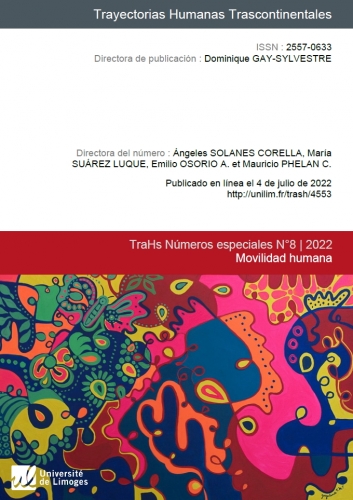En la actualidad, a nivel global, la movilidad humana constituye uno de los temas de mayor atención por las implicaciones que reviste. Las migraciones se han potenciado de manera significativa, con diversificación de orígenes y destinos. Durante el siglo XXI la movilidad humana se ha incrementado adoptando nuevas modalidades de traslado. Si bien la motivación de las migraciones internacionales contemporáneas sigue teniendo un claro carácter económico, no es menos cierto que durante los últimos dos lustros también ha crecido el número de migrantes forzados, desplazados por distintas causas y personas obligadas a huir, en busca de protección, por diferentes motivos de persecución. Esto revela no solo el aumento de su volumen sino también la expansión de las condiciones que la origina, por lo que se trata de un fenómeno que impacta a nivel global. En la movilidad humana se incluye a los solicitantes de asilo y refugiados, y a las personas obligadas a trasladarse por razones medioambientales, catástrofes, o por conflictos bélicos en cualquiera de sus modalidades. Por eso, autores como Zygmunt Bauman aseveren que el aumento de la movilidad masiva, de refugiados y solicitantes de asilo se produce por la creciente lista de “Estados en derrumbe” o ya derrumbados, territorios sin Estado, sin ley, escenarios de luchas tribales (de carteles) y sectarias, de asesinatos en masa.
En las sociedades de destino, las personas migrantes, refugiadas o beneficiarias de protección internacional tienden a ser considerados como extraños generando diferentes formas de reacción hacia ellas, las cuales van desde las más solidarias hasta las de rechazo extremo como la xenofobia, aporofobia y otras formas de discriminación. Con relativa frecuencia, en los países de acogida, y sus respectivas sociedades, existe una falta de consenso sobre cómo tratar y gestionar la llegada de esta población foránea. Para los estados receptores este fenómeno puede representar una situación inédita para la cual sus instituciones no están preparadas, mientras que para sus pobladores puede significar alteraciones en su vida cotidiana. Como se sabe, los países más pobres son los que generan mayor movilidad humana, pero al mismo tiempo, paradójicamente, también suelen ser los que más inmigrantes, refugiados y desplazados acogen.
Aun cuando existe una literatura considerable que aborda la movilidad humana, en este número especial interesa poner el foco en el análisis de las motivaciones que pudieran estar detrás de la expulsión masiva de población. Es decir, una visión integral que intente explicar y comprender este fenómeno desde las experiencias de los migrantes y refugiados y desde la perspectiva de la población receptora.
